April 12, 2018 | David Kohn
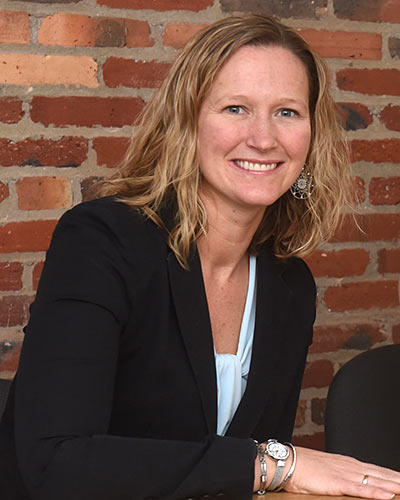
Schools Encouraging More Healthy Eating, More Exercise
Schools across Maryland are doing more to encourage their students to eat healthy foods and to be physically active, according to a new report by researchers at the University of Maryland School of Medicine.
The report, released today by the Maryland School Wellness Partnership, a collaboration between the University of Maryland School of Medicine (UMSOM), Maryland State Department of Education, and Maryland Department of Health, examined how schools across the state are doing in terms of school wellness, integrating physical activity into the classroom, and discouraging marketing of unhealthy foods and beverages. The report used data from a biennial survey of Maryland school administrators by the Partnership and funded by the Department of Health.
“Our data shows that many Maryland schools are making significant progress in this area,” said one of the principal authors of the report, Erin Hager, PhD, associate professor of Pediatrics at UMSOM. “We think the end result will be that students are getting more physical activity and are eating more healthy foods. That’s good news for Maryland.”
Some school systems have gone above and beyond in their efforts to improve students’ activity levels and food choices, Dr. Hager says. For example, in Worcester County on the Eastern Shore, the school system has been extremely active. Every school in the county has a wellness team that develops ways for the school to increase its physical activity and healthy eating. The county more than doubled the number of schools that include physical activity in classroom instruction. In addition, half of the schools in the county have physical activity during breaks, in every grade. The schools have introduced a “Grit and Fit” program to highlight ways in which students have shown perseverance in both academics and healthy living.
 Washington County, in western Maryland, has also made a serious effort to improve healthy eating and activity among students. Ninety percent of schools have a wellness team, and the county more than doubled the number of schools that include physical activity in classroom instruction.
Washington County, in western Maryland, has also made a serious effort to improve healthy eating and activity among students. Ninety percent of schools have a wellness team, and the county more than doubled the number of schools that include physical activity in classroom instruction.
Members of the Partnership will visit all 24 Maryland school systems this spring to provide feedback on their schools’ wellness efforts and local best practice recommendations. This is the third time Maryland school systems have received these tailored reports and feedback.
School systems say this feedback helps them better understand wellness practices in schools. “We love the feedback,” says Marla Caplon, Director of Student Wellness Initiatives for Montgomery County Public Schools. “It helps us understand how our system’s wellness policy is being implemented in schools, and allows our Wellness Committee to develop future initiatives.”
The Partnership will encourage educators to support school-based wellness teams, communicate system-level wellness initiatives to schools, and report on school-level wellness initiatives. “Our research continues to show the importance of having an active school-based wellness team to create a health-promoting school environment,” said Dr. Hager. “Creating a climate that supports healthy eating and physical activity will both support health and academic achievement among Maryland children.”
“Obesity and inactivity remain urgent public health issues,” said E. Albert Reece, MD, PhD, MBA, Executive Vice President for Medical Affairs at UM Baltimore, and the John Z. and Akiko K. Bowers Distinguished Professor and Dean, University of Maryland School of Medicine. “Dr. Hager and her colleagues have developed an innovative strategy that has real potential to make a significant dent in this difficult problem.”
About the University of Maryland School of Medicine
Commemorating its 210th Anniversary, the University of Maryland School of Medicine was chartered in 1807 as the first public medical school in the United States. It continues today as one of the fastest growing, top-tier biomedical research enterprises in the world -- with 43 academic departments, centers, institutes, and programs; and a faculty of more than 3,000 physicians, scientists, and allied health professionals, including members of the National Academy of Medicine and the National Academy of Sciences, and a distinguished recipient of the Albert E. Lasker Award in Medical Research. With an operating budget of more than $1 billion, the School of Medicine works closely in partnership with the University of Maryland Medical Center and Medical System to provide research-intensive, academic and clinically-based care for more than 1.2 million patients each year. The School has over 2,500 students, residents, and fellows, and nearly $450 million in extramural funding, with most of its academic departments highly ranked among all medical schools in the nation in research funding. As one of the seven professional schools that make up the University of Maryland Baltimore campus, the School of Medicine has a total workforce of nearly 7,000 individuals. The combined School and Medical System (“University of Maryland Medicine”) has an annual budget of nearly $6 billion and an economic impact in excess of $15 billion on the state and local community. The School of Medicine faculty, which ranks as the 8th-highest public medical school in research productivity, is an innovator in translational medicine, with 600 active patents and 24 start-up companies. The School works locally, nationally, and globally, with research and treatment facilities in 36 countries around the world. Visit medschool.umaryland.edu/
Contact
Office of Public Affairs
655 West Baltimore Street
Bressler Research Building 14-002
Baltimore, Maryland 21201-1559
Contact Media Relations
(410) 706-5260
Related stories
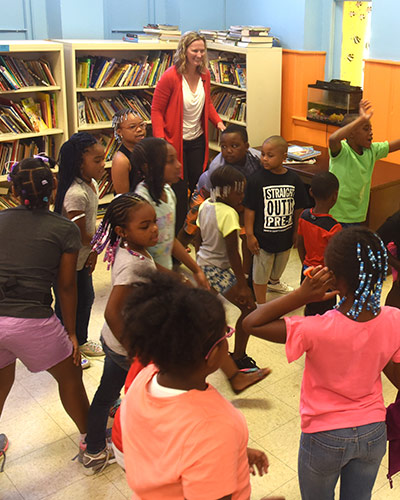
Thursday, January 28, 2021
COVID-19 Pandemic Led to Decreased School Meal Access for Children in Need Across Maryland, UM School of Medicine Study Finds
School closures during COVID-19 have decreased access to school meals, which is likely to increase the risk for food insecurity among children in Maryland, according to a new report issued by researchers at the University of Maryland School of Medicine (UMSOM). The number of meals served to school-age children during the first three months of the pandemic dropped by 58 percent, compared to the number of free or reduced-price meals served the previous spring. As a result, thousands of children across the state were placed at increased risk of food insecurity, with many likely experiencing the health ramifications associated with the abrupt disruption in their access to regular meals.

Friday, December 18, 2020
Low-Income Preschoolers Exposed to Nurturing Care Have Higher IQ Scores During Their Teen Years, Landmark Study Finds
Preschoolers living in impoverished communities who have access to a nurturing home environment have significantly higher intelligence quotient (IQ) scores in adolescence compared to those raised without nurturing care. That is the finding of a new international study conducted by University of Maryland School of Medicine (UMSOM) researchers, which examined data from more than 1,600 children who were followed from birth through their teenage years. Results were published this week in The Lancet Child & Adolescent Health journal.
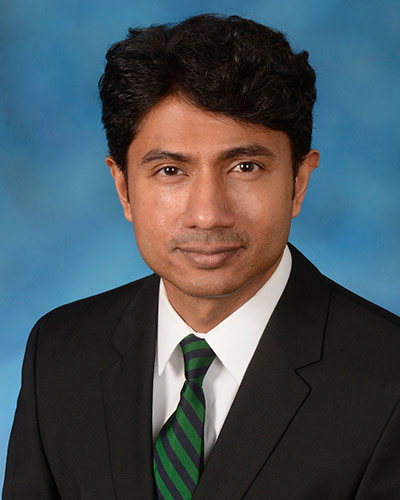
Thursday, January 30, 2020
UMSOM Pediatric Infectious Disease Experts Sound Alarm Over Risk of Outbreaks in U.S. Border Detention Centers
Over the past year, at least seven children have died from diseases including influenza while being detained by the U.S. Department of Homeland Security’s Customs and Border Protection (CBP) agency. Infectious disease experts at the University of Maryland School of Medicine (UMSOM) called for protections like influenza vaccinations to prevent serious outbreaks.
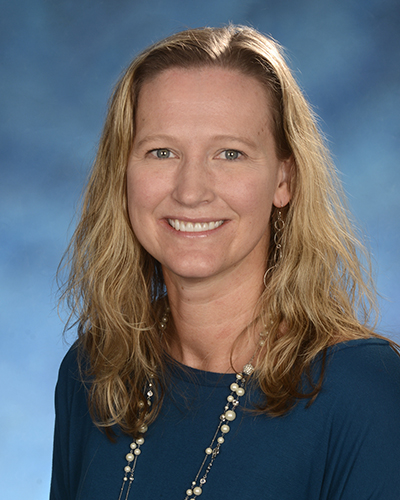
Wednesday, May 22, 2019
UM School of Medicine Announces New Leadership for Program in Health Disparities and Population Health
Jay S. Magaziner, PhD, MSHyg, Professor and Chair of the Department of Epidemiology and Public Health at the University of Maryland School of Medicine (UMSOM), along with UMSOM Dean E. Albert Reece, MD, PhD, MBA, announced new leadership for UMSOM’s Program in Health Disparities and Population Health (HDPH), a program housed in the Department of Epidemiology and Public Health that combines research, education and service to advance health equity.
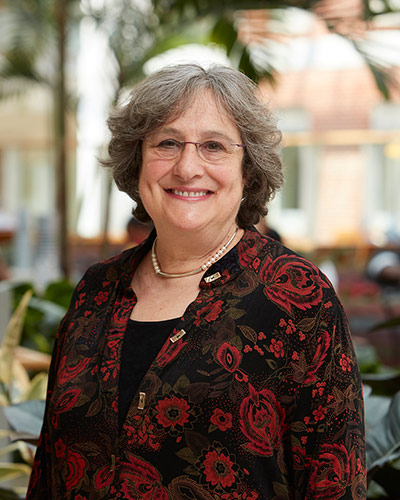
Monday, May 06, 2019
UM School of Medicine's Dr. Karen Kotloff Receives 2019 Alumni Achievement Award from Temple University
Karen Kotloff, MD, Professor of Pediatrics at the University of Maryland School of Medicine (UMSOM), has received the 2019 Alumni Achievement Award from the Lewis Katz School of Medicine at Temple University.

Thursday, January 11, 2018
Research Shows That Co-Sleeping with Toddlers Can Impact Mother's Mental Health
For parents of toddlers with sleep problems, co-sleeping may not be a good strategy, according to new research from the University of Maryland School of Medicine (UMSOM) and the University of Maryland School of Nursing (UMSON). Co-sleeping is defined as a parent sleeping in the same room or same bed with their child.
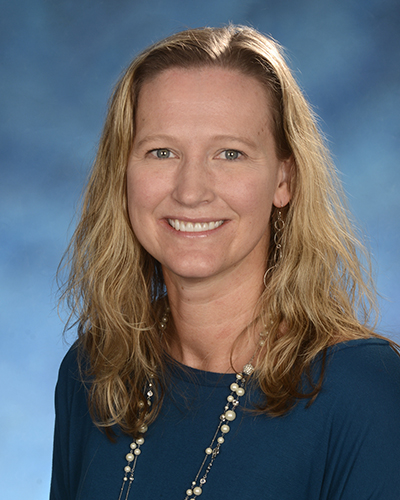
Thursday, December 08, 2016
UMSOM Receives Grants to Examine Fresh Approach to Promoting Health and Wellness in Maryland Schools
The University of Maryland School of Medicine has received almost $5 million from the Department of Agriculture to develop innovative ways to prevent childhood obesity by promoting healthy eating and exercise in city and state schools. The program takes a new approach, training teachers and students to improve schools themselves.
